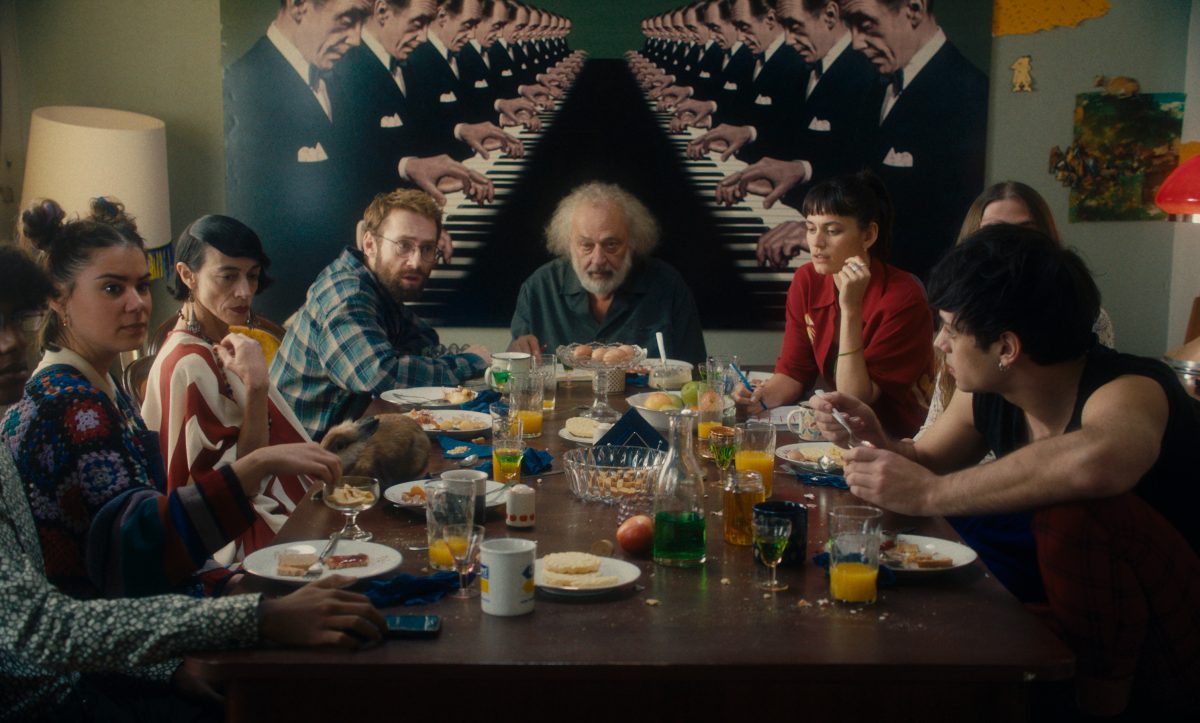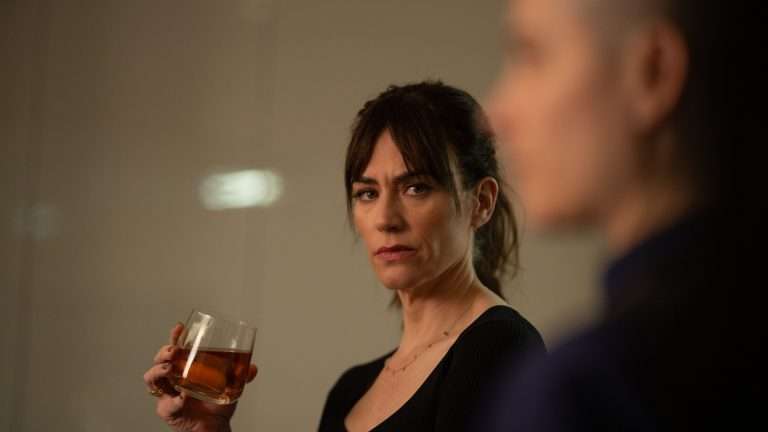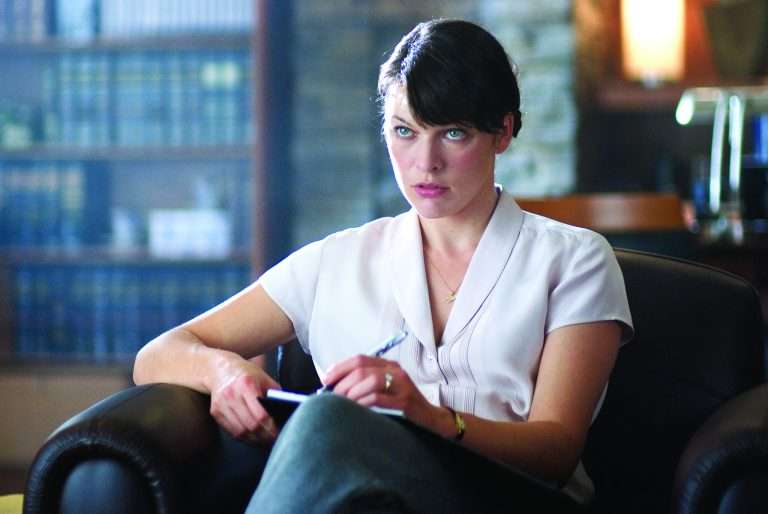Greece is still looking for gurus and gets disappointed when the gurus don’t deliver. This is the overall impression of the high-concept, sci-fi-infused study of closeted communities in the uneven but conceptually entertaining “Novak” by Harry Lagoussis, which world premiered at the 2025 Edinburgh International Film Festival.
Zlatko Buric (of the “Triangle of Sadness” and even “Superman” fame) plays the eponymous character. Dr. Nikola Novak, a Croatian neuroscientist, who had to leave former Yugoslavia, and is now living in disgrace in Greece, after being arrested for false medicine practice in the 1990s. This is the date that sets the film’s first frame: we see a VCR tape of ‘patient Z’, whose doctor guides her hopefully to hypersense geometrical shapes presented to her.
The film quickly cuts to 2022 Christmas and the present time. A friend of Dr. Novak takes care of his groceries in a setting that powerfully evokes Yorgos Lanthimos (check the robot-like female assistant with the oversized blond wig). Yet, Lagoussis has a different project in mind than a clinical study of a society in disintegration.
His purpose is more a positive one: to recover human communion at all costs. That’s why the initially withdrawn doctor will get out of his humdrum, derelict place -tempted by the young fan Petros (Yannis Papadopoulos). Petros will introduce Novak to the ‘New Atlantis’ reformist and activist society, whose members need to save the world from electromagnetic pollution. The commune will accomplish that by successfully alternating between evening soirees and individual activist actions. Maria, the host (Elena Topalidou, in a Lotte Lenya-like attire and demeanor), will organize everything, but will set her own limits as well.
“Novak” has none of the extricacies of mainstream sci-fi, spiritualist films (ordinary computers and tape recorders are the only ones allowed in the world of no electromagnetic intervention). It also plays the concept seriously enough, leaving no room for parody or even grotesque elements. The New Atlantis members want to connect (even though sexual interaction is curiously, almost absent from the film) with one another and the outside world.
The only film smile comes from a cleverly hand-drawn animated segment that explains the origin and organizational purposes of this closely-knit but still relaxed society. The young Louise/Lou (Ella Rumpf) is the object of desire for both Petros and Novak, yet the film swiftly moves away from individual desires to its concept elaboration.

It partially succeeds. We are drawn into a world of careful believing in anti-establishment practices before finally the tables are overturned; the art direction (especially in the New Atlantis habitat) makes us think we’re in a high-minded, modern art-infested state of the world with just a few flashes of mirrors and modernist art. Yet, the dialogues often stifle and become inappropriate to the high science its practitioners seem to practice, making the film move with an overall glacial pace in its second act.
Zlatko Burić makes the most of a character already well-known from the start, yet he still shines in the glamorized dresses he wears in crucial parts of the film — a camp direction the film flirts with but never fully embraces. The film’s most successful, out-in-the-mountains third act, holds the whole film together, presenting a dilemma between the fragile and uncertain (but reality-driven) state of the external world and a retreat into an enclosed, perfectly-made seclusion driven by paranoia hints.
The sound design plays a substantial role in a film that deals with ordinary sound (nothing alien in “Novak”), making us expect the extraordinary. The film-within-the-film trope has its merits, but Lagoussis seems too undecided to know what to do with it narratively.
Far from being an unengaged film, “Novak” personifies the need for a savior out of the established ranks, and then watches him closely when he starts to unravel. His almost nostalgic viewpoint of an all-encompassing attempt at explanation to the multitude of the world’s problems does not go unnoticed.
“Novak” features some missed narrative opportunities and sometimes lacks distinct individual framing. Yet, it communicates forcibly the need for a unified, communal living, in Greece or elsewhere. With or without gurus.






